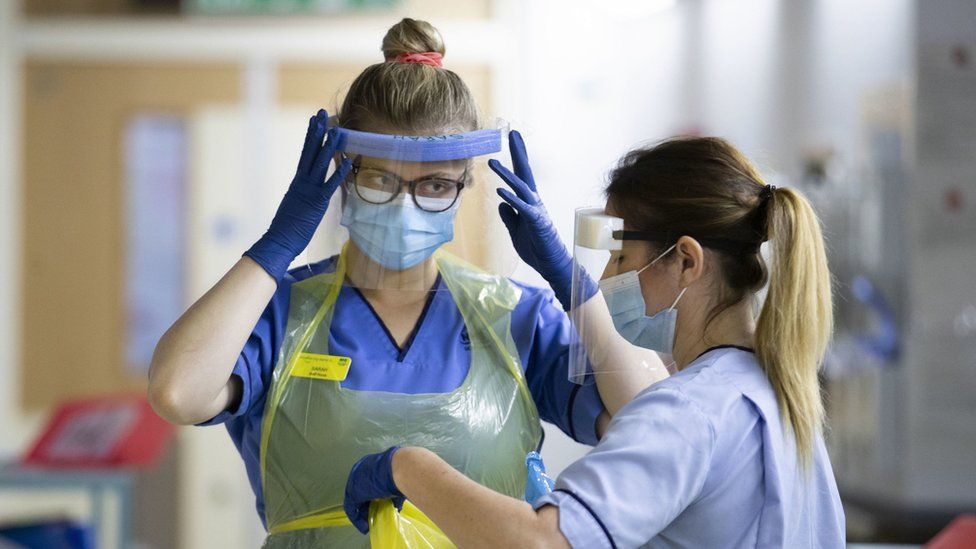The David Cameron Greensill Capital Scandal has unearthed further allegations of “sleaze” as the Beeb published text conversations between inventor James Dyson and Boris Johnson at the start of the pandemic where he asked the Singapore-based entrepreneur for help developing ventilators. This comes after the public spending watchdog, the National Audit Office (NAO) report showed poor transparency, incomplete documentation, questionable processes for PPE procurement, stating the government failed to meet standards while spending billions of public funds on contracts. It also revealed a “priority list” referred by ministers and senior health professionals after the PPE procurement was taken out of NHS local trusts hands and into centralised government control in March of last year.
The PPE stories beggar belief. From receiving a fraction of the 400,000 unusable gowns from a Turkish t-shirt manufacturer with the Royal Air Force having to go collect; to 50 million unusable face masks in a £252 million contract from a currency trading company; to the Miami jewellery designer paid £21m consultant fee to broker a £250m PPE contract for the UK; and even a pest control company having £19,000 net assets was given a £108m contract for PPE. To know it was our public money for schools, hospitals, roads and pensions that was squandered; we have a right to answers.
The real question should be why our leaders took control away from the NHS. It is, after all, in the top 10 of worldwide organisations by staff numbers, behind the Chinese military. The NHS and its local trusts employ supply chain and distribution professionals and should have procured and distributed PPE themselves. The government, however, took PPE control away from the NHS and put it in a centrally controlled body and NHS trusts were ordered not to purchase PPE themselves.
NHS trust managers don’t take manufacturers’ promises on supplying, they do due diligence. Storing materials risks contamination, wasting money as new equipment is needed. As we found out, sourcing reliable PPE when everyone else wanted it defeated the “as-needed” protocol.
Clearly the system was not suited to panic measures when every politician were rushing around trying to protect their backsides. Yet, in any disaster you will find opportunists buying up something in short supply or sell things they don’t own with the intention of finding it afterwards.
Slew of Mistakes
We shouldn’t have taken control away from an effective NHS framework. Devolved control may have taken Covid more seriously and requested higher precautionary budgets. Despite warnings from Italy, our centralised control failed to act timely. Meanwhile, they sent our PPE to China while knowing we had out-of-date PPE, dwindling stock and not taking up offers from UK firms who produce PPE. They also pulled out of the EU ventilator and PPE procurement scheme, later lied about it, removing the pandemic insurance plans drafted under Tony Blair for future global contagion risk, left borders open, didn’t screen nor have compulsory quarantine for arrivals until 2021 and so on ad nauseum. The trouble with organising a response of this magnitude by a small vanguard of decision-makers invites mistakes. At least when you have many inputs, someone calls out a bad idea for what it is.

Chumocracy
“Chumocracy”, or the privilege of having an “Old Boys Network” political connections may be rife, we just don’t know. Further clarification showed 10% of contracts were handed to this special “list”, which means 90% were not. And credit to the government, only 0.5% of the product was unworkable – a large sum in £ but as percentage failure not bad given the shambles other European nations faced. We succeeded in obtaining PPE, but at what cost? Far more than needed, much of which unusable and logistics were non-existent leading to 11,000 containers of PPE at Felixstowe port. All while healthcare workers were forced to make rudimentary PPE from bin-liners.
Context of Panic
Within the context of Spring 2020, this was at a time when nation-states were trampling on each other and multilateralism had collapsed. America bought out France-bound Chinese masks on the tarmac in China for 3 times the price in cash, as one of many such interventions creating mask shortages. Medical supply exports were blocked, spies sent to find tests on fears of shortages and health systems at the brink. Turkey even reneged on foreign mask sales that had been paid for and banned exports of protective gear. Preparedness was patchy despite warnings for years of global pandemic risk, as Italy could have used her neighbours ICU beds in February and reciprocated in April.
It would have been hard to imagine that medical supplies main transport means were in the cargo of civilian planes, showing a greater need for localisation of medical manufacturing.
For all the blame to go around, China “intentionally concealed the severity” of the novel coronavirus, while ramping up imports and decreasing exports of medical supplies. And we, the world, foolishly listened to the WHO’s Tedros Adhanom tell us not to panic.
Although it came at great expense, we are performing well in the vaccine department, with UK government-backed AstraZeneca offering doses at £3, versus Moderna $37 a dose, after opting to not profit on vaccine sales. Yet even now our neighbours are freely slinging mud with AZ faced with EU lawsuits on slow vaccine rollouts. While France’s Pfizer will make billions on her vaccine.
As with the Greensill Capital fiasco, sleaze shows us why we can’t let ministers have their way, regardless of the level of expediency at hand. Centralised, opaque contract tendering shows why we invite to tender and publish within 30 days for scrutiny and why we use the NHS devolved local trusts, both to save waste and conserve funding – even in emergencies.


